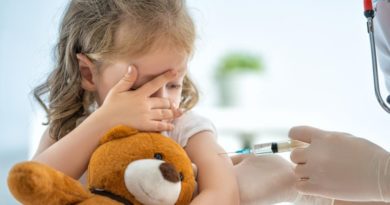Sorry RFK Jr.: COVID vaccines work. What is there to debate?
Dr. Marc Siegel
Several years ago, I debated David Kirby, author of the 2006 book “Evidence of Harm,” in a public forum for PBS. The subject was vaccine safety and whether mercury in vaccines somehow caused autism. It was a spirited debate, during which I maintained that the causal link among vaccines, the mercury-containing additive thimerosal and autism had never been shown.
After the debate, Kirby surprised me by agreeing that the link had not been proved. “But it was worth the investigation,” he said.
I disagreed. “Billions of dollars that could have been spent determining what really causes autism were used up on this effort,” I replied.
Now, Democratic presidential candidate Robert F. Kennedy Jr. continues to try to make the connection between thimerosal-containing vaccines and autism, despite the fact that studies involving millions of children have shown no connection.

Doctor harassed after declining to debate Kennedy about vaccines
Dr. Peter Hotez of Baylor University is a top infectious disease specialist and vaccine researcher with an autistic child, Rachel, who he famously said did not get autism from a vaccine. Hotez recently declined to debate Kennedy on host Joe Rogan’s podcast and has been harassed outside his home and online since announcing that decision.
With such a fundamental disagreement between Hotez and Kennedy about the safety and effectiveness of vaccines, where does the truth lie for patients?
Joe Rogan, RFK Jr. don’t get it:Vaccine science isn’t up for debate
I address this question every day in my doctor’s office, not by imposing mandates or ignoring immunity from prior infection, two important mistakes made by public health officials during the pandemic, but by having a conversation with my patients and determining what their concerns and needs are.
Together, we make a risk vs. benefit analysis. Which is riskier? The virus or the vaccine we have to fight it? And how does that apply to your particular case given your risk factors for the virus versus your tolerance or intolerance of other vaccines you’ve taken in the past?
I wish that I had had the COVID-19 vaccines to administer in my office during the pandemic, but the lack of availability in doctors’ offices was another important public health mistake. I was able to have the vaccine conversation, but then my patients had to go elsewhere to receive the shot.
The goal of a vaccine is to alert the immune system to the presence of a pathogen without actually subjecting the body to the harm of that pathogen. Vaccine technology has evolved to the point where we can accomplish this without using a live virus or even a weakened one, but by using a viral protein or a messenger (mRNA) to signal cells to make that protein. In other words, we can get an equivalent immune impact with less of an intrusion.
US has a doctor shortage:Congress can help by expanding our physician workforce
Are there side effects to the COVID-19 vaccines? Of course. But are the side effects along the same line as side effects of the virus itself but occurring much less frequently or severely? That is what the science shows so far.
The truth is that COVID-19 vaccines dramatically reduce disease’s severity
With billions of people around the world having received COVID-19 shots, associated side effects such as myocarditis have been well demonstrated, but myocarditis also is much more common and severe when contracted from the virus itself. In addition, brain fog, fatigue, lung and heart problems and other manifestations of “long COVID-19” appear to be much less common or severe among those who have been vaccinated and boosted.
So what is the debate? Many in the anti-vax group claim that governments were too dogmatic and inflexible in their approach, insisting that the vaccine prevented spread when it didn’t, especially after the variants emerged.
That is partially true, but anti-vaxxers’ argument does not address the fundamental value of the vaccine at dramatically decreasing the severity of COVID-19 and initially reducing the rate of transmission.

The politicization of the vaccines is one of the great failings of our fight against COVID, with lines drawn between red and blue states and beyond.
A debate between Hotez and RFK Jr., with Rogan as the moderator, would not address this fundamental problem. It would perpetuate it.
Dr. Marc Siegel, a member of USA TODAY’s Board of Contributors, is a professor of medicine and medical director of Doctor Radio at New York University’s Langone Health. His latest book is “COVID: the Politics of Fear and the Power of Science.” Follow him on Twitter: @DrMarcSiegel


